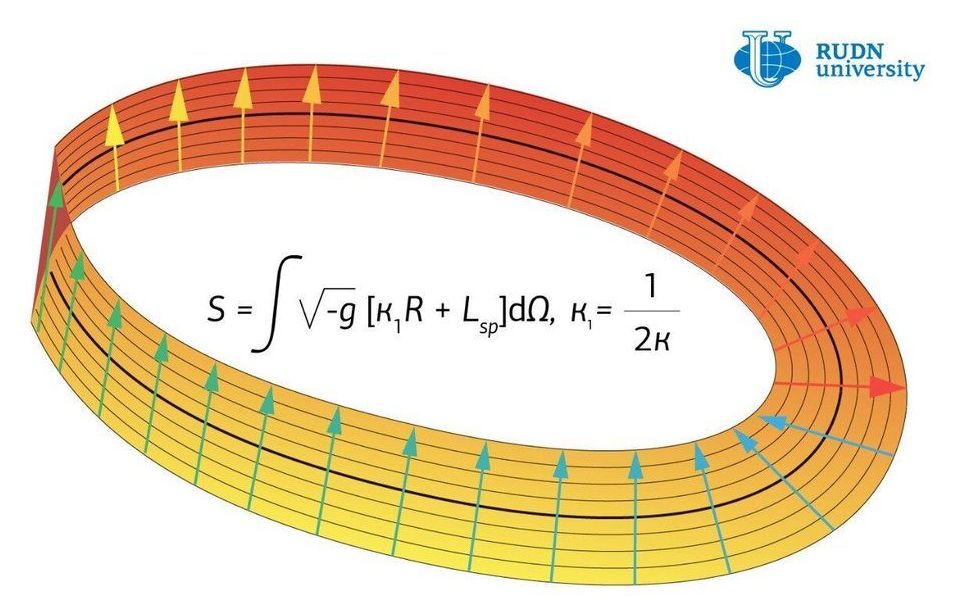A physicist from RUDN University has proposed a new theoretical model for the interaction of spinor and gravitational fields. He considered the evolution of the universe within one of the variants of the widespread Bianchi cosmological model. In this case, a change in the calculated field parameters led to changes in the evolution of the universe under consideration. Upon reaching certain values, it began to shrink down to the Big Bang. The article was published in the journal The European Physical Journal Plus.
The spinor field is characterized by its behavior in interaction with gravitational fields. Dr. Bijan Saha of RUDN University focused on the study of a nonlinear spinor field. With its help, he explained the accelerated expansion of the universe. The study of a spinor field with a non-minimal coupling made it possible to describe not only the expansion of the universe, but also its subsequent contraction and the resulting Big Bang within the framework of the standard Bianchi cosmological model.
The basic calculations performed by Bijan Saha allow moving away from the isotropic model of the Friedman-Robertson-Walker universe (FRW) that is most often used. According to this traditional model, the properties of the universe are independent of the direction in which they are considered. The physicist has put forward an alternative: an anisotropic model in which such dependence exists. On the one hand, the “classical” isotropic model describes the evolution of the modern universe with great precision. On the other hand, there are theoretical arguments and observational data that lead to the conclusion that an anisotropic phase existed in the distant past.










Comments are closed.